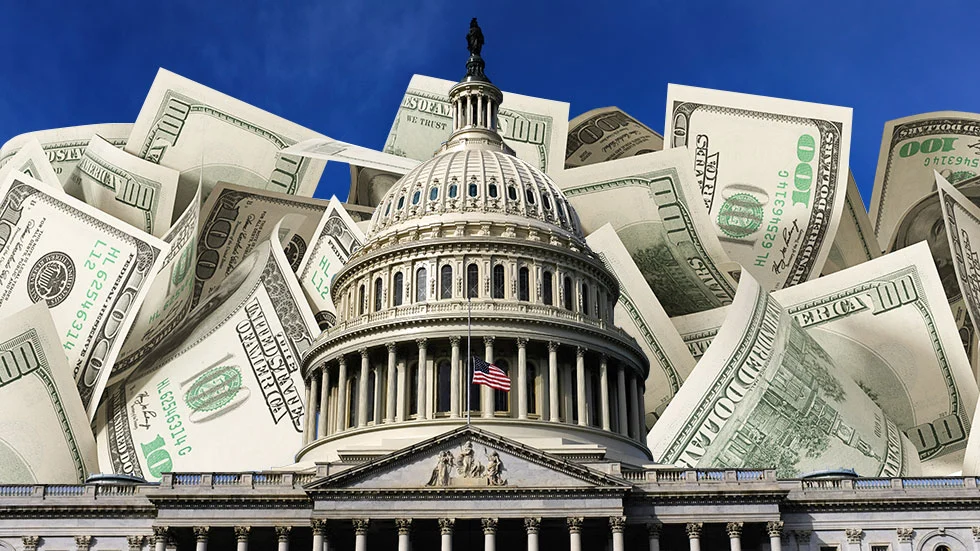US Treasury Secretary Janet Yellen warned on Sunday that a failure by Congress to address the debt ceiling could lead to a “constitutional crisis” and jeopardize the federal government’s creditworthiness.

Yellen expressed concerns over the potential impact on financial markets if the debt ceiling is not raised by early June, when the government may run out of cash to cover its expenses. In an interview with ABC’s “This Week,” Yellen stressed that negotiations should not occur “with a gun to the head of the American people.”

President Biden has requested Congress to raise the debt ceiling without preconditions. Last month, the Republican-controlled House of Representatives passed a bill to increase the government’s $31.4 trillion debt ceiling, but it also included extensive spending cuts over the next decade, which Biden and fellow Democrats oppose. Biden is scheduled to meet with Republican House Speaker Kevin McCarthy, Republican Senate Minority Leader Mitch McConnell, and leading congressional Democrats on Tuesday to discuss the issue.

Yellen emphasized the importance of Congress’s role in addressing the debt ceiling, stating, “It’s Congress’s job to do this. If they fail to do it, we will have an economic and financial catastrophe that will be of our own making.” She also mentioned the potential constitutional crisis, referring to the balance of powers between the executive and legislative branches under the US Constitution. Biden has maintained that he will not negotiate over the debt ceiling increase but is willing to discuss budget cuts after a new limit is established.

The US regularly sets a limit on federal borrowing, with the current ceiling being approximately 120% of the nation’s annual economic output. The debt reached this ceiling in January, and the Treasury Department has managed to keep obligations within the limit. However, by July or August, the US could face a complete halt in borrowing, potentially sending shockwaves through global financial markets as investors question the value of US bonds, which are considered safe investments and form the foundation of the world’s financial system.

The House-passed bill proposes spending reductions to 2022 levels, with a 1% annual growth cap, a repeal of some tax incentives for renewable energy, and stricter work requirements for certain anti-poverty programs. Democratic Senate Majority Leader Chuck Schumer has initiated steps towards a vote on a bill to suspend the government’s debt limit for two years without conditions, but Senate and House Republicans have expressed opposition. Schumer would need support from at least nine Republicans to reach the 60-vote threshold required to advance the legislation.






